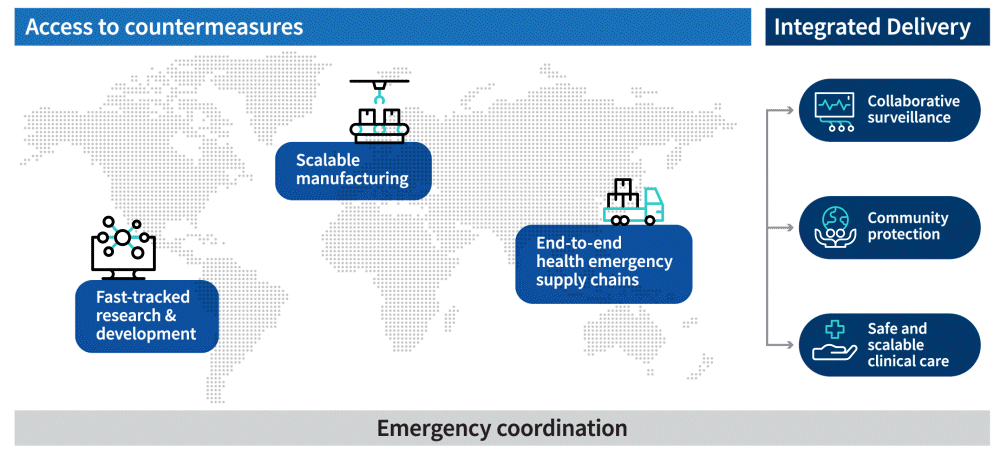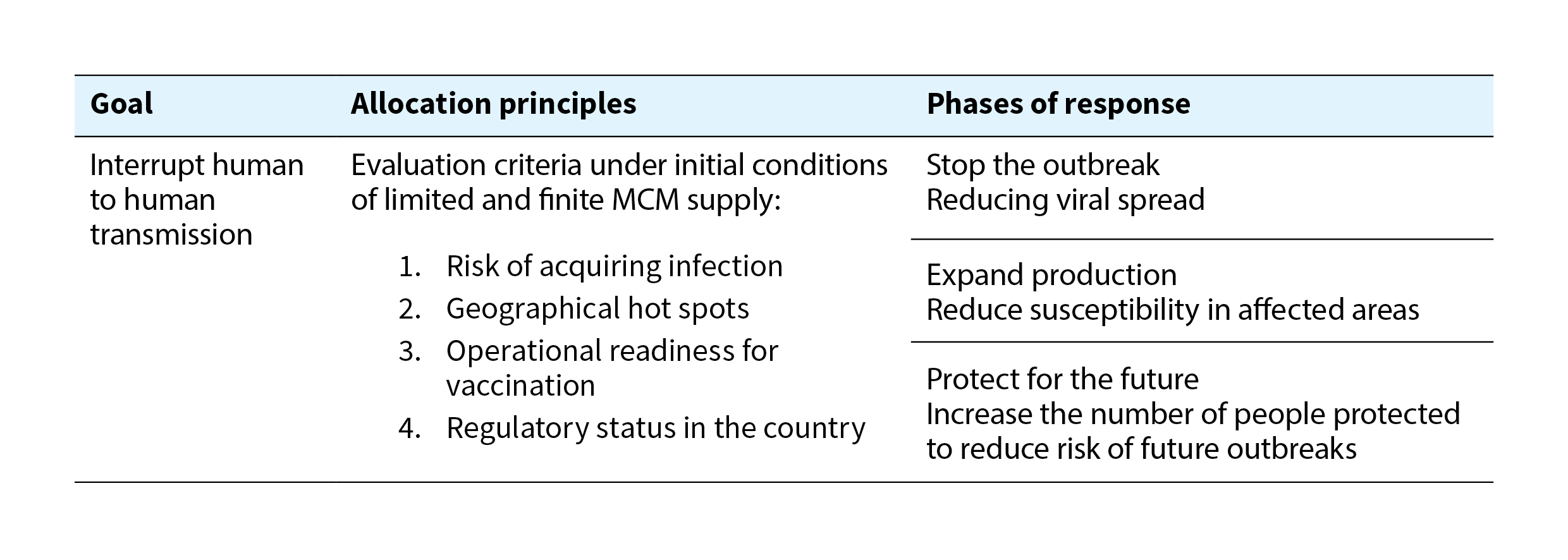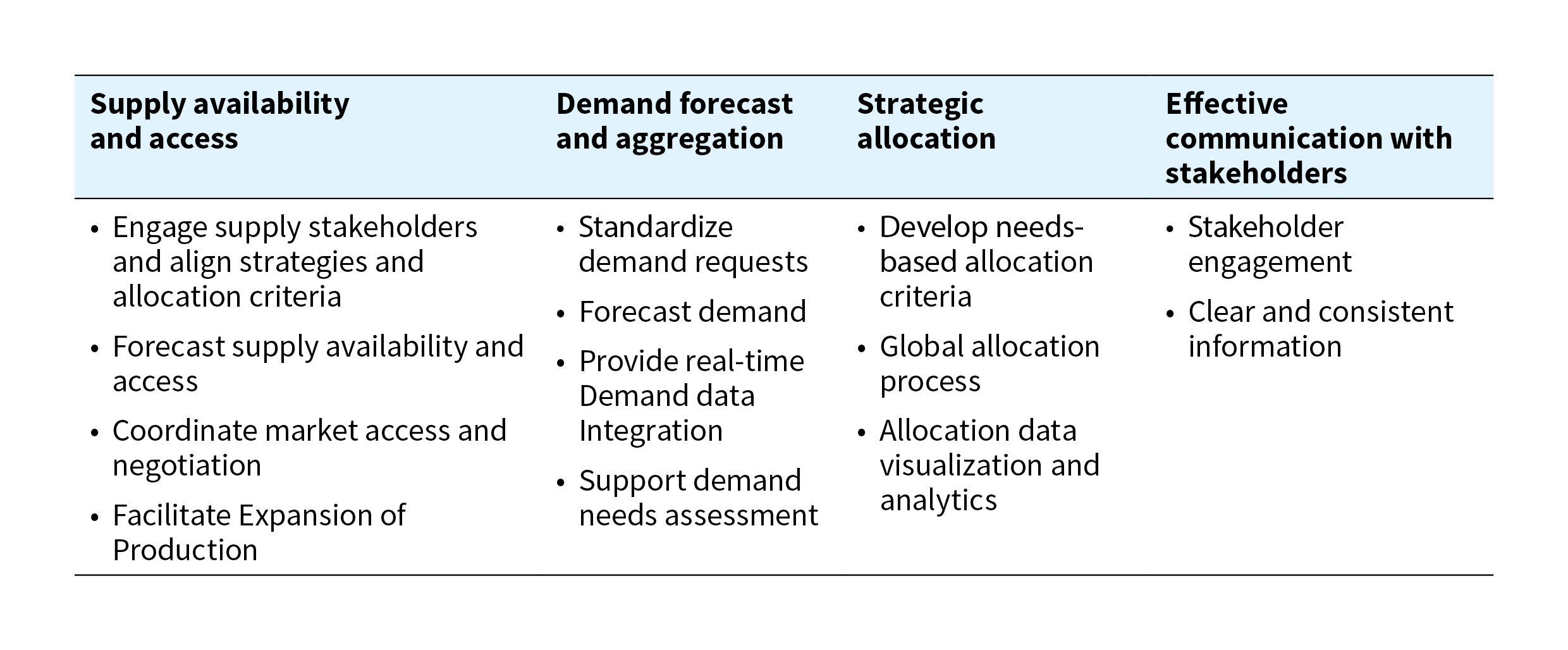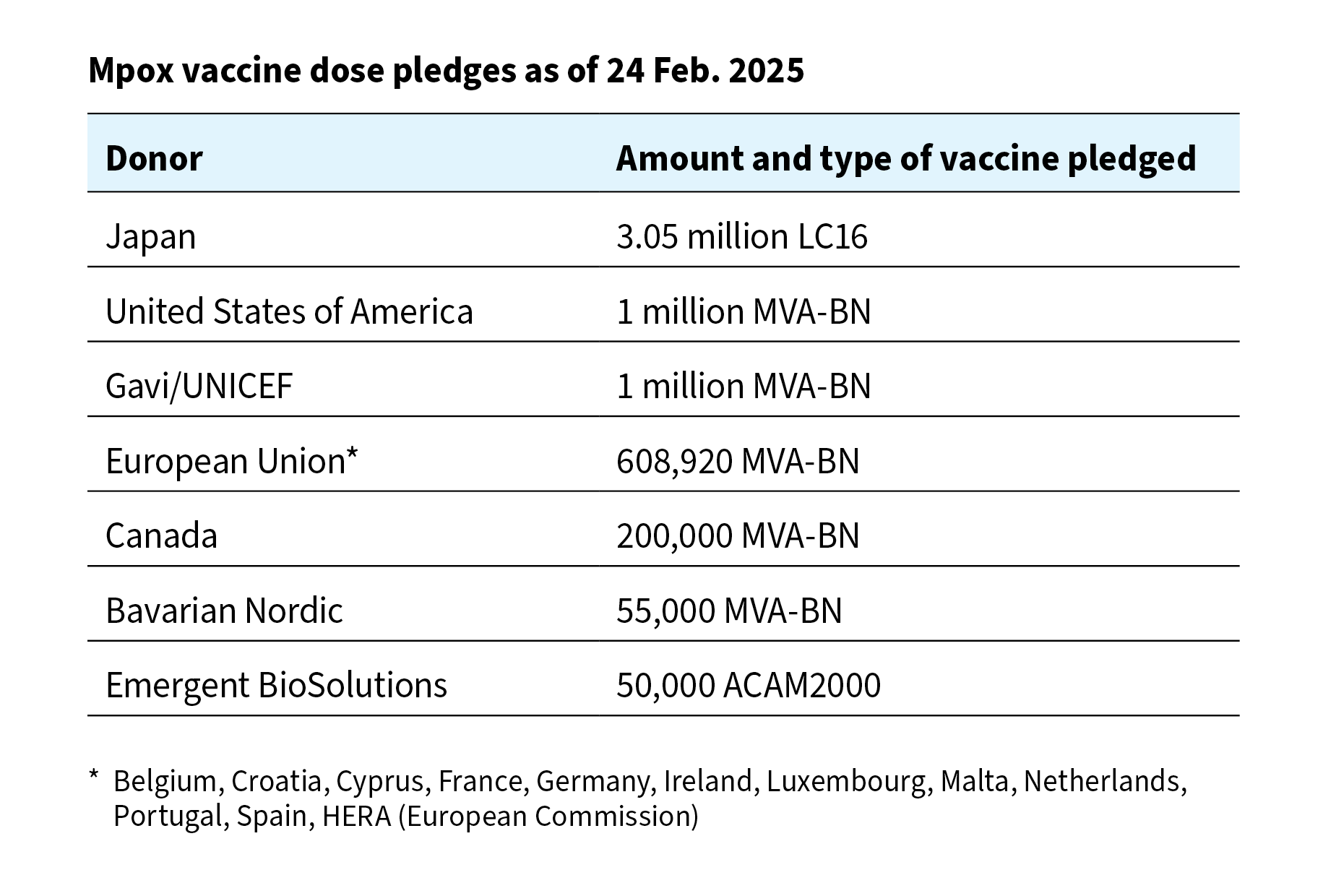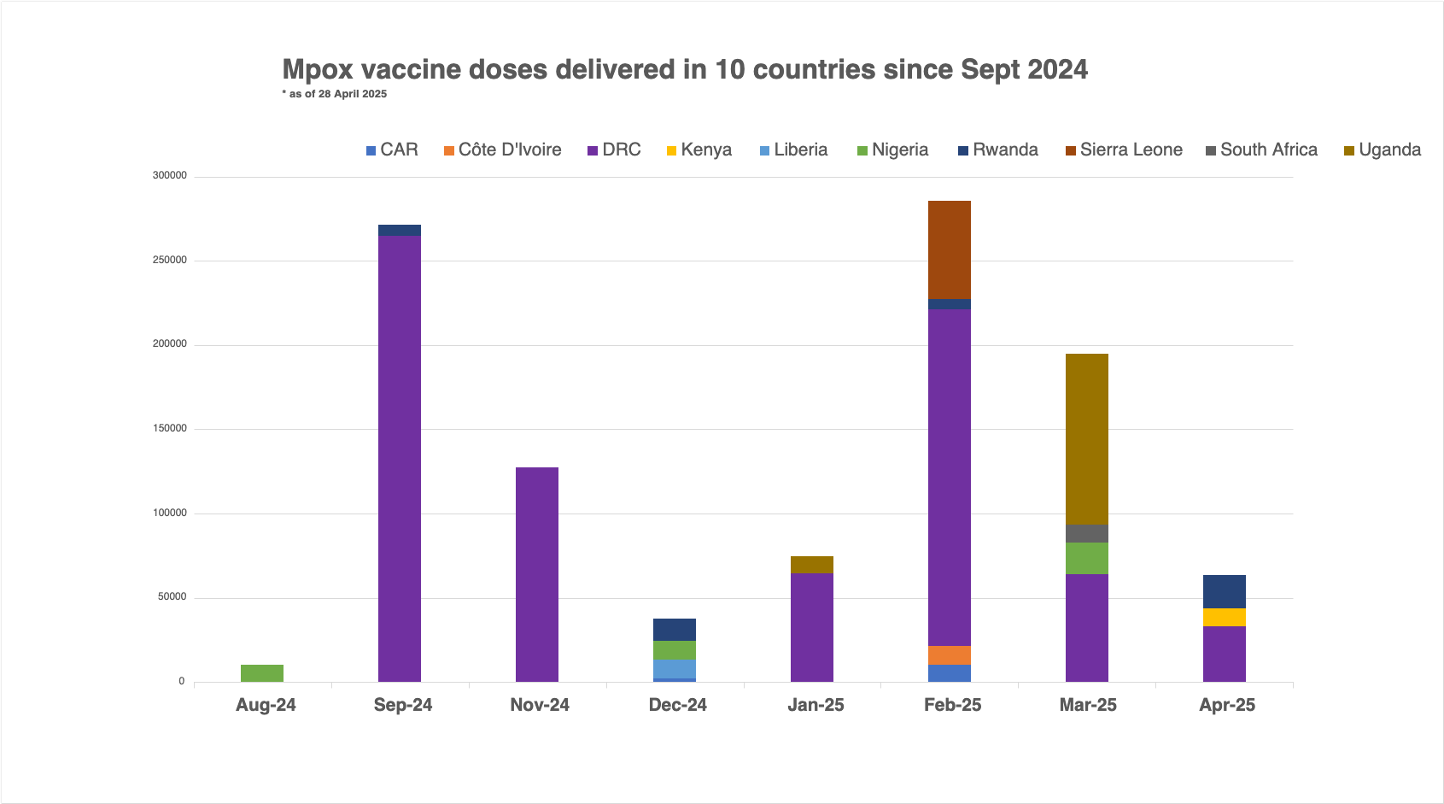
Interim Medical Countermeasures Network
(i-MCM-Net)
To enhance collaboration for timely and equitable access to medical countermeasures in public health emergencies
About
The COVID-19 pandemic exposed global vulnerabilities and highlighted the need for stronger international preparedness for future pandemics. To address these, negotiations are ongoing for a convention, agreement or other international instrument to strengthen pandemic prevention, preparedness and response. Should a public health emergency arise before these negotiations conclude, an interim coordination mechanism for timely and equitable access to medical countermeasures (MCMs) like diagnostic tests, treatments and vaccines has been established.
This mechanism, known as the interim Medical Countermeasures Network (i-MCM-Net), enhances collaboration through a ‘Network of Networks’ approach. The initiative’s vision is to provide timely and equitable access to quality, safe, effective and affordable MCMs in response to public health emergencies by building on existing networks and fostering global collaboration.
Approach and values

i-MCM-Net leverages the 'Network of Networks' approach to achieve readily scalable capability across the MCM value chain. We are committed to transparency, accountability and inclusivity. These values guide our interactions with countries, communities and partners, promoting coordination, collaboration and communication.
Useful links
- Seventy-fourth World Health Assembly WHA74.7 (31 May 2021), Agenda item 17.3: Strengthening WHO preparedness for and response to health emergencies
- Strengthening the global architecture for health emergency prevention, preparedness, response and resilience (HEPR)
- High-Level-Meeting on Pandemic Preparedness, prevention and response (HLM PPPR)
- IHR amendments (1 June 2024)
Related
Contact
WHO i-MCM-NET Secretariat
World Health Organization
Avenue Appia 20
1211 Geneva
Switzerland
Email: mcpconsultation@who.int



